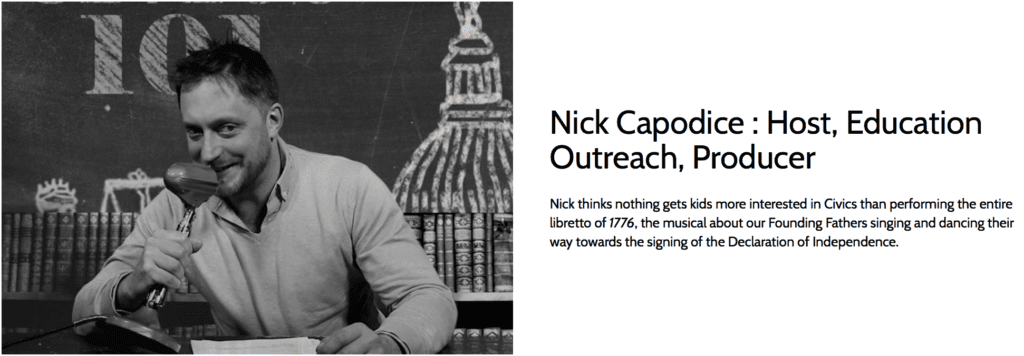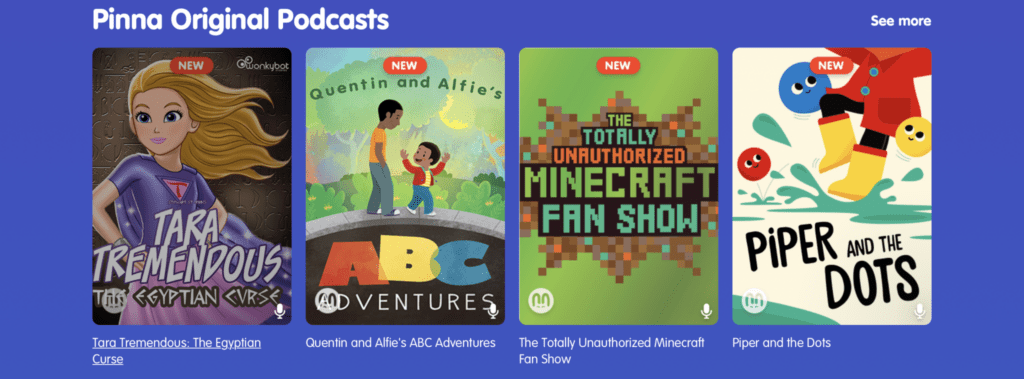A new school year is underway, and students from kindergarten through college seniors are settling into their routines. Increasingly, their classroom experiences are including podcasts as learning materials alongside textbooks, articles, and videos.
In an era when children of all ages spend a lot of time looking at a screen of some sort, podcasts provide a different way for students to engage in educational content and process information.
The idea of teachers using podcasts in their classes is nothing new, but the idea of podcasters working directly with teachers to create educational content is gaining traction. Pairings that used to occur by happenstance or informal networks are now being formalized as podcasters work directly with teachers and companies create content specifically intended for classroom use.
Here are a few ways that those collaborations are happening across the podcast industry and across the educational spectrum.
America Adapts, a podcast that examines how people from all walks of life are adapting to climate change, launched its Podcasts in the Classroom initiative last year after host Doug Parsons heard from a regular listener who had been using the show in her college classes.
Parsons worked with the instructor, Kate Bishop-Williams at the University of Waterloo in Ontario, Canada, to create educational guides to accompany several of the show’s episodes. Each guide includes a series of discussion questions and a list of additional open educational resources related to each episode’s topic.

“The materials get to the heart of what’s covered in the episode,” Parsons said.
The goal is for college professors or K-12 teachers to have the resources they need to facilitate a group discussion or assign a reflection paper based on an America Adapts episode or series of episodes. Materials also include a rubric for instructors to use when grading reflection papers.
Parsons said it’s difficult to tell how many teachers are utilizing the assignment guides, but he has received invitations to speak to classes who have listened to his episodes.
Moving forward, he’s hoping to create episodes targeted directly toward college students who are interested in pursuing a career in climate change after they graduate.

If you listen to cable news or read political punditry, a phrase you’ll often hear is something like, ‘Schools don’t teach civics these days.’ The podcast Civics 101 aims to change that.
New Hampshire Public Radio started the show after the 2016 election and has released nearly 200 episodes so far. Civics 101 provides resources for teachers, including quizzes based on groups of episodes, worksheets for students to complete as they listen, and in-class activities like a “popularity contest” based on the Electoral College.
The show also has an educator advisory board made up of middle and high school social studies teachers around the country. Robbie Tubbs, Jr., a civics teacher at Clearfield Area Junior/Senior High School in Pennsylvania, is one of those board members.

Tubbs said he first assigned Civics 101 as a listening activity with a substitute while he was out, but found that students responded well to the episodes and began adding them to his ninth-grade civics curriculum.
“It’s tough to get kids excited about reading at the high school age, and especially tough to get them excited about reading government and political documents,” he said. “Using podcasts makes everyone more accessible and helps what I do in the classroom.”
Students listen individually on school-provided laptops, and Tubbs encourages them to follow along with the episode transcript to improve comprehension.
When Tubbs started using the podcast in his classes, he tweeted about the experience and caught the attention of Civics 101 host and producer Nick Capodice, who invited him to join the education advisory board.

Since then, Tubbs has provided feedback to the show’s team about how to create educational resources for educators and episodes that are designed for classroom use.
This year, he's branching out to teach the history of Western civilization, rather than focusing specifically on American government. He’s already looking ahead to podcasts he can incorporate into those lessons, including Fall of Rome and Tides of History.

You might know about Pinna as a podcast platform for parents looking to decrease screen time for their children. However, the company is also working closely with elementary and middle school teachers to deliver shows and episodes that are created with the classroom in mind.
Pinna CEO Maggie McGuire said the company included 200 preschool through sixth-grade teachers in its pre-launch research last summer. Since then, she said the company has been working “under the hood” on curriculum development while rolling out its first group of shows.
McGuire said the company hopes to release a portfolio of teachers’ guides and lesson plans for every Pinna original show by the end of the year.

“We are developing activities and printables, but also thinking about how a teacher would use these shows as part of a curriculum and how they map to standards,” she said.
McGuire is a former teacher and was an executive at Scholastic before joining Pinna. She said this experience helps inform how the company approaches its educational content.
By introducing audio into the classroom as early as preschool, teachers have the opportunity to create lifelong learners and lifelong listeners. Teachers have been doing this for decades through audiobooks, music and other media, but podcasts provide fresh, on-demand content that’s easy to access.
“Audio is a very powerful precursor to developing pre-literacy skills,” McGuire said. “All teachers know that audio is a powerful benefit, but it’s having a real renaissance right now through podcasts and incorporating them into the classroom is an extension of what many teachers are already doing.”




Join the Movement